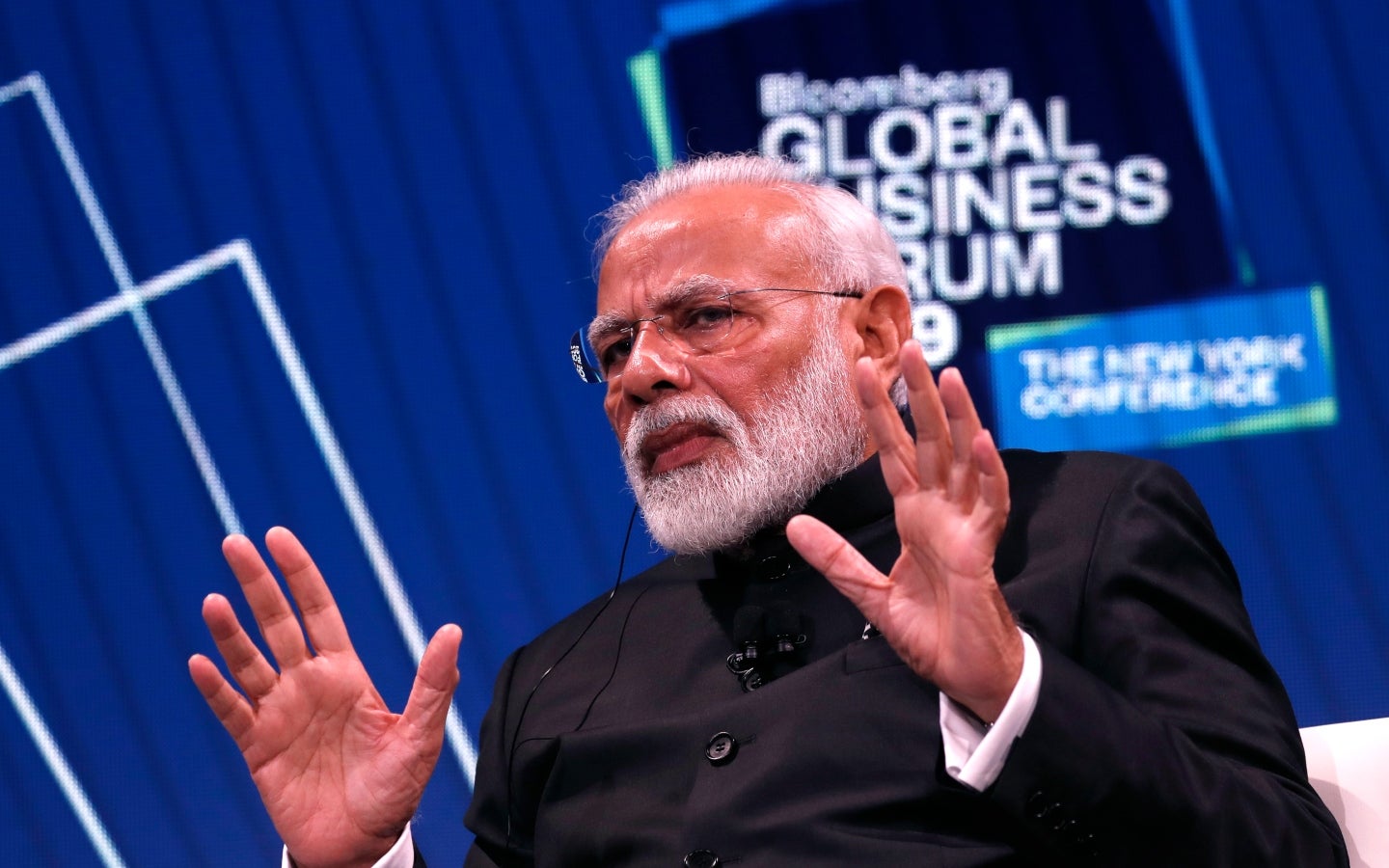Did Modi just weigh in on India’s “national language” debate?
Indian prime minister Narendra Modi may have indirectly weighed in on a long-running language debate that has divided the country’s political landscape.


Indian prime minister Narendra Modi may have indirectly weighed in on a long-running language debate that has divided the country’s political landscape.
Referring to how global investors could be made to feel confident about their investments in India, Modi today (Sept. 25) said, “There are two elements that make the country stand apart: democracy and the judicial system that uses the English language…because of English, interpretation is never a problem when there are disputes. So language in itself is playing a major role here.”
Modi made the remarks—in Hindi—during a conversation with American businessman Michael Bloomberg at the Bloomberg Global Business Forum in New York City. The Indian prime minister also delivered the keynote address at the event, switching several times between English and Hindi. In the on-stage Q&A with Bloomberg that immediately followed, the former New York City mayor asked his questions in English and Modi answered in Hindi.
The prime minister’s comments on the Indian judiciary’s “English language advantage” arguably take on extra significance amid a nationwide debate on languages that has transfixed much of that country over the past few weeks. Heated arguments have been made from across political and linguistic aisles ever since Amit Shah, India’s home minister and Modi’s second-in-command, pitched Hindi as the national language of the country.
“It is a national responsibility that Hindi expands and prospers,” Shah said earlier this month. “[I]t is absolutely essential that the entire country has one language that becomes the identity of the nation in the world. If there is any language that can tie the whole country in one thread, it is the most spoken language of Hindi.”
India does not have a national language, since none is spoken widely enough to have gained that status. Hindi, the native tongue of a relatively large chunk of Indians, along with English—a kind of common denominator among Indians—is the language of the Indian government. There are a number of other official languages that regional governments use to cater to their own local populations.
Only around 2% of Indians speak English, though that translates into a huge number, given the country’s 1.3 billion population. English speakers have long been considered to have a major advantage in the business world, and English-speaking is seen to have a played a key role in India’s economic rise.
Following the outcry over his initial remarks, Shah withdrew from his earlier stance—and claimed to have never proposed making Hindi India’s common language.
Now his boss also seems to have subtly hinted at maintaining status quo, both at the Bloomberg event and two days earlier at the “Howdy, Modi!” gala in Houston, Texas, where huge crowds heard him deliver the iconic Bollywood line “all is well” in multiple Indian languages.
If Modi’s knack for political signaling is anything to go by, the message to Indians back home is loud and clear.